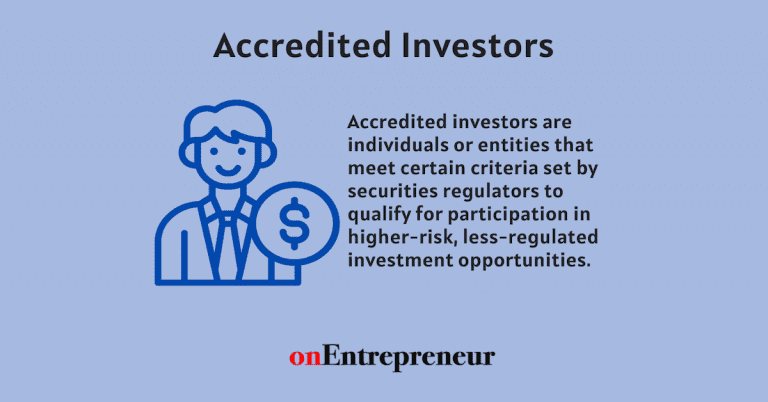Accredited investors are individuals or entities that meet certain criteria set by securities regulators to qualify for participation in higher-risk, less-regulated investment opportunities. They are considered financially sophisticated enough to participate in certain private investment opportunities that involve more risk.
The Securities and Exchange Commission (SEC) defines accredited investors under Regulation D Rule 501 as those with sufficient wealth, income, expertise, or status to be deemed financially sophisticated enough to bear the risks involved with private securities offerings.
Why Accredited Status Matters
Being an accredited investor allows access to investments exempt from full SEC registration requirements, such as:
- Private equity and venture capital
- Hedge funds
- Private placements and structured products
- Early stage private company stock
These unregistered securities carry inherently higher risk but also the potential for above average returns given limited participation.
Conversely, companies raising capital through private exempt offerings can only sell these unregulated securities to verified accredited investors and institutions. This limited qualified audience allows avoiding the substantial costs of full registration.
Individual Qualification Criteria
For individuals, accredited status is based on either wealth and income OR professional expertise:
Wealth and Income Thresholds
- $1 million+ in net worth excluding primary residence, either alone or jointly with a spouse
- $200,000 individual income/$300,000 joint spousal income per year for the last 2 years and expected current year
Professional Credentials
- Active Series 7, Series 65, or Series 82 securities license
- Status as an executive officer or director for the issuing company
Entity Qualification Criteria
For companies or organizations, accredited status relies on size, assets, owners, or regulated status:
- $5 million+ in organizational investments or assets
- Entity owners all accredited (LLC, partnership, etc.)
- Regulated financial entities like banks, insurance companies, registered investment advisors
Accredited investors may participate in private securities offerings exempt from full SEC registration requirements. Examples include private equity, hedge funds, venture capital, and private company stock. These carry higher risk but offer access to potential above market returns.
The SEC rules aim to allow financially sophisticated parties to take on increased risk while protecting everyday investors through the registration process. Entities selling securities must verify accredited investors.



